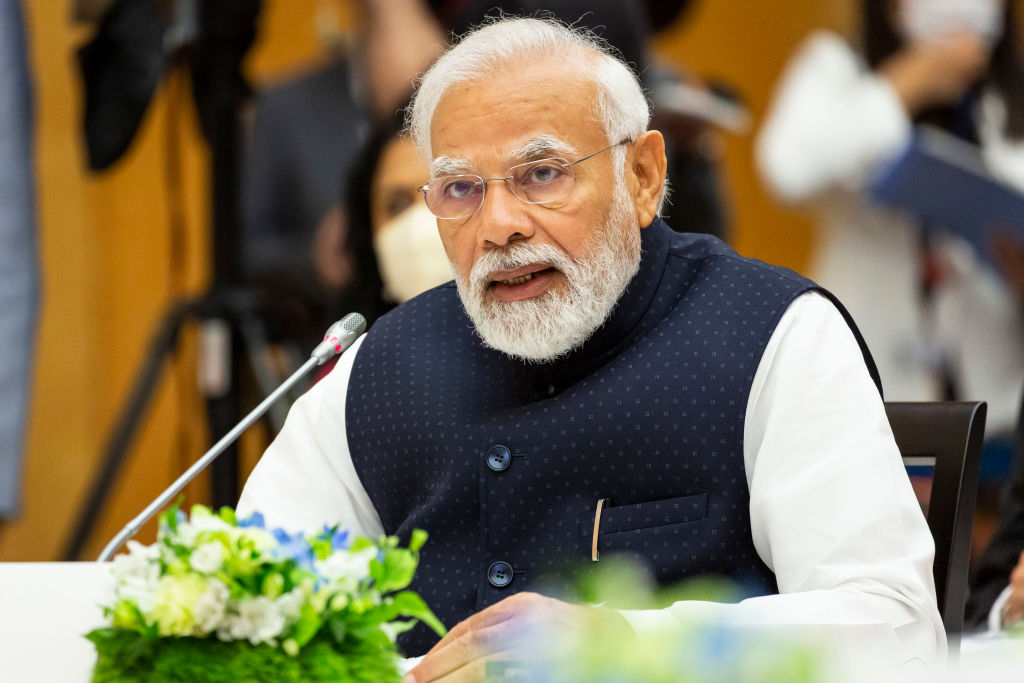- Monday, June 30, 2025
The only Indian prime minister to have visited Hiroshima till today is Jawaharlal Nehru who went there in 1957.

By: Shubham Ghosh
Indian prime minister Narendra Modi is set to visit Hiroshima for the G7 summit on Friday (19) and his trip will be historic since it will be the first visit by an Indian prime minister to Japanese city after the South Asian country conducted its nuclear tests in Pokhran in the north-western state of Rajasthan in 1974 and 1998.
The only Indian prime minister to have visited Hiroshima, which was devastated by a nuclear attack by the US in 1945 that saw Japan surrendering before the Allied Powers in the Second World War, is Jawaharlal Nehru who went there in 1957.
Besides this symbolic significance, Modi’s visit to Hiroshima is also important as India is one of the few nations that have not signed the Nuclear Non-Proliferation Treaty (NPT). He will also join other G7 leaders at the Peace Memorial Park that is dedicated to victims and survivors of the atomic bomb attack.
Quad summit cancelled after Biden calls off Australia trip; Modi to still visit Sydney
From the perspective of the host nation, too, it is an important event as its prime minister Fumio Kishida is a member of Japan’s National Diet from Hiroshima. He personally invited Modi to visit the G7 summit during his visit to India in March.
The Indian Express newspaper cited sources saying the Indian side is cognizant of the fact that people of Hiroshima and Japan are sensitive over the issue and that New Delhi is not a signatory of the NPT.
Modi thanks visiting Japan PM Kishida for inviting him to G7 summit
According to the daily’s report, while Tokyo is likely to arrange for a meeting of the leaders of G7 and other guests arriving there with families of the victims of the atomic attack, Delhi is preparing to emphasise that it views the NPT as discriminatory and that its nuclear programme is meant for peaceful purposes and commitment to no first-use of the nuclear weapons.
India is expected to project its track record as a nuclear power that act responsibly. Recently, it also expressed concern when leaders of Russia used rhetoric of a nuclear warfare in the context of the ongoing war in Ukraine.
On May 11, India observed 25 years of its 1998 nuclear tests in Pokhran under the government of former prime minister Atal Behari Vajpayee. The day is observed in the country as ‘National technology Day’. In 1974, India had carried out its first nuclear bomb test, also in Pokhran. Indira Gandhi was the prime minister then.
Besides India, which currently holds the G20 presidency, the G7 — which includes besides Japan, Germany, Italy, Canada, France, US and UK — has invited the European Union, Australia, Brazil, Comoros (chair of the African Union), the Cook Islands (chair of the Pacific Islands Forum), Indonesia (ASEAN chair), South Korea and Vietnam.
The United Nations, International Monetary Fund, World Bank, World Health Organisation and World Trade Organisation will also attend the summit which will be held between Friday and Sunday (21).
Modi will also visit Papua New Guinea and Australia in this tour.